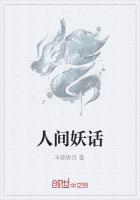Here groups of young men, with chivalrous idealism, were jeering at and chivying the broken remnants of a suffrage meeting. Felix debated whether he should oppose his body to their bodies, his tongue to theirs, or whether he should avert his consciousness and hurry on; but, that instinct which moved him to wear the gray top hat prevailing, he did neither, and stood instead, looking at them in silent anger, which quickly provoked endearments--such as: "Take it off," or "Keep it on," or "What cheer, Toppy!" but nothing more acute. And he meditated: Culture! Could culture ever make headway among the blind partisanships, the hand-to-mouth mentality, the cheap excitements of this town life? The faces of these youths, the tone of their voices, the very look of their bowler hats, said: No! You could not culturalize the impermeable texture of their vulgarity. And they were the coming manhood of the nation--this inexpressibly distasteful lot of youths! The country had indeed got too far away from 'the Land.' And this essential towny commonness was not confined to the classes from which these youths were drawn. He had even remarked it among his own son's school and college friends--an impatience of discipline, an insensibility to everything but excitement and having a good time, a permanent mental indigestion due to a permanent diet of tit-bits.
What aspiration they possessed seemed devoted to securing for themselves the plums of official or industrial life. His boy Alan, even, was infected, in spite of home influences and the atmosphere of art in which he had been so sedulously soaked. He wished to enter his Uncle Stanley's plough works, seeing in it a 'soft thing.'
But the last of the woman-baiters had passed by now, and, conscious that he was really behind time, Felix hurried on. . . .
In his study--a pleasant room, if rather tidy--John Freeland was standing before the fire smoking a pipe and looking thoughtfully at nothing. He was, in fact, thinking, with that continuity characteristic of a man who at fifty has won for himself a place of permanent importance in the Home Office. Starting life in the Royal Engineers, he still preserved something of a military look about his figure, and grave visage with steady eyes and drooping moustache (both a shade grayer than those of Felix), and a forehead bald from justness and knowing where to lay his hand on papers.
His face was thinner, his head narrower, than his brother's, and he had acquired a way of making those he looked at doubt themselves and feel the sudden instability of all their facts. He was--as has been said--thinking. His brother Stanley had wired to him that morning: "Am motoring up to-day on business; can you get Felix to come at six o'clock and talk over the position at Tod's?" What position at Tod's? He had indeed heard something vague--of those youngsters of Tod's, and some fuss they were making about the laborers down there. He had not liked it. Too much of a piece with the general unrest, and these new democratic ideas that were playing old Harry with the country! For in his opinion the country was in a bad way, partly owing to Industrialism, with its rotting effect upon physique; partly to this modern analytic Intellectualism, with its destructive and anarchic influence on morals. It was difficult to overestimate the mischief of those two factors; and in the approaching conference with his brothers, one of whom was the head of an industrial undertaking, and the other a writer, whose books, extremely modern, he never read, he was perhaps vaguely conscious of his own cleaner hands. Hearing a car come to a halt outside, he went to the window and looked out. Yes, it was Stanley! . . .
Stanley Freeland, who had motored up from Becket--his country place, close to his plough works in Worcestershire--stood a moment on the pavement, stretching his long legs and giving directions to his chauffeur. He had been stopped twice on the road for not-exceeding the limit as he believed, and was still a little ruffled.
Was it not his invariable principle to be moderate in speed as in all other things? And his feeling at the moment was stronger even than usual, that the country was in a bad way, eaten up by officialism, with its absurd limitations of speed and the liberty of the subject, and the advanced ideas of these new writers and intellectuals, always talking about the rights and sufferings of the poor. There was no progress along either of those roads. He had it in his heart, as he stood there on the pavement, to say something pretty definite to John about interference with the liberty of the subject, and he wouldn't mind giving old Felix a rap about his precious destructive doctrines, and continual girding at the upper classes, vested interests, and all the rest of it. If he had something to put in their place that would be another matter.
Capital and those who controlled it were the backbone of the country--what there was left of the country, apart from these d--d officials and aesthetic fellows! And with a contraction of his straight eyebrows above his straight gray eyes, straight blunt nose, blunter moustaches, and blunt chin, he kept a tight rein on his blunt tongue, not choosing to give way even to his own anger.
Then, perceiving Felix coming--'in a white topper, by Jove!'--he crossed the pavement to the door; and, tall, square, personable, rang the bell.















